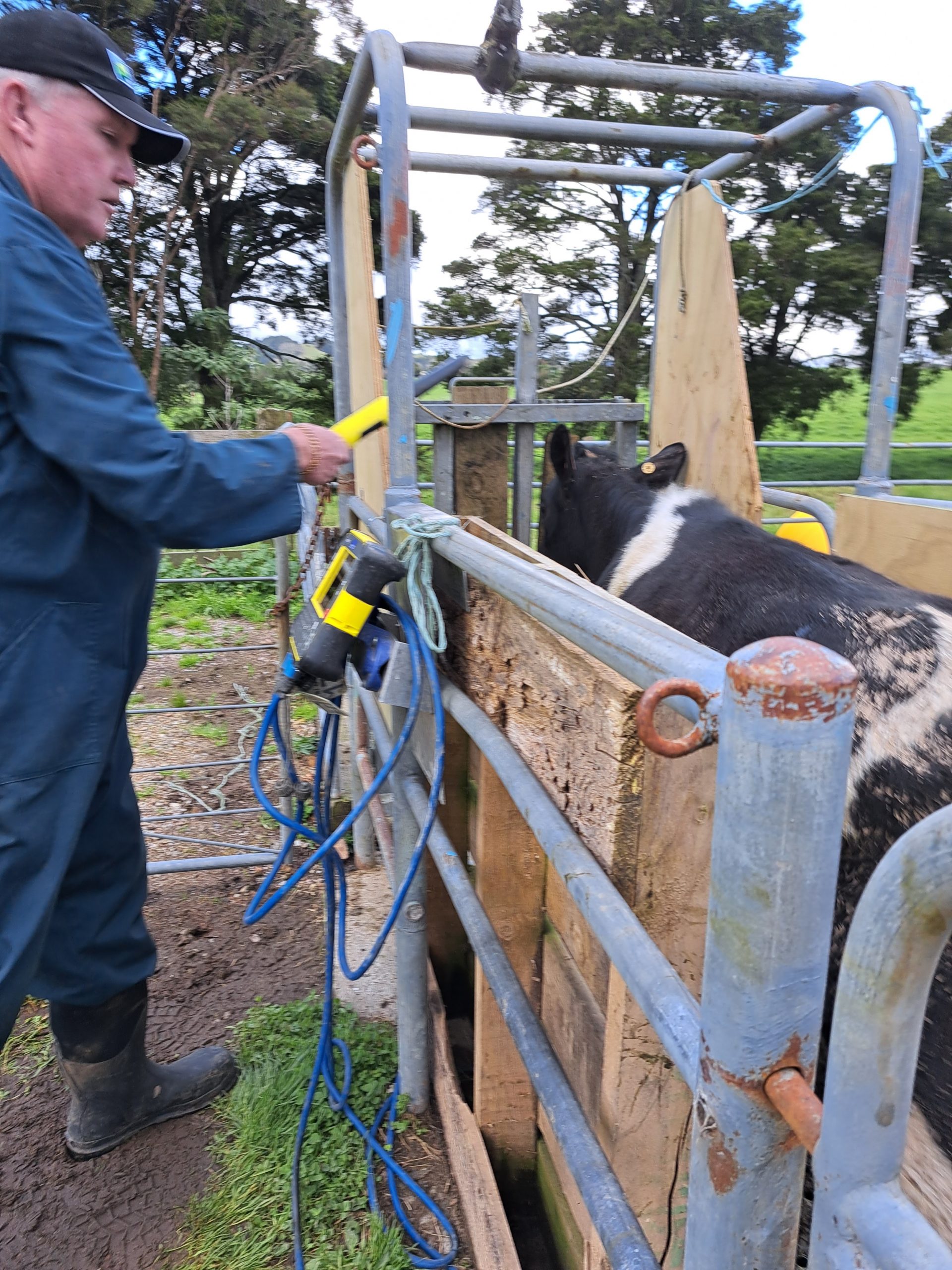Service Bull Management
Here at NZ Grazing we run a team of Jersey service bulls primarily for use over the heifers grazing in our system. The management of these bulls during the “off season” is critical to ensuring good quality and condition of the bulls for the breeding season. In the two to three months prior to the breeding season we observe that the bulls are in good shape to be put out for mating. We also carry out all the health tests and vaccinations ensuring they have the optimal health standards for the upcoming job at hand.
Our Jersey bulls have joined our team as weaners coming straight from the jersey breeder farm to our bull growers under a specialist jersey bull management program. These bulls are weighed regularly throughout their lifetime and the “off season” to ensure appropriate growth rates are being achieved and resulting in a good body condition score. The reason it is so important that a bull have a good body condition is that during the mating season a bull will commonly lose weight, due to the high physical activity during mating. Our bull team are predominantly pasture grazed on rolling hill country giving good natural fitness. This results in our bulls adapting well to the high workload, especially at the start of the breeding season. Bulls in good body condition have reserves to draw on while they are working hard avoiding energy deficits that may impact on fertility and functionality.
Service manager Richard Hammond gives some tips on bull management during the mating season below:
Richard explains it is most important that you observe what is happening with mating activity. Observation cannot be over – emphasised!
What are you looking for?
1. The correct bulls (individuals) are actually in with the mob, they have not gone somewhere else and you do not have unexpected visitors. Always use a minimum of two bulls per mob.
2. Observe your bulls daily to ensure they are properly performing. Checking that they are not lame and do not demonstrate other injury or infection. Immediately remove bulls that are unable to serve properly and replace them with more capable bulls. It is important you do check your bulls on a daily basis as if a bull is to go lame or get sick during the mating period they will need to be replaced for the rest of mating period. This is because any infections, antibiotic treatment, and elevated temperatures effect sperm production for 30+ days making them ineffective for use.
3. The bulls are taking an active interest in “bulling” heifers. If you are present for only a few minutes every couple of days, you may get a wrong impression on this.
4. What you cannot see is the sperm fertility – but don’t worry about that! It is a rare Jersey bull indeed that is not producing vast amounts of quality sperm cells on a daily basis – concentrate on seeing that he is delivering what he has in the right place at the right time – because this is what you can see and manage.
5. Make a note when the first three weeks is due and check that the “bulling” activity is diminishing to indicate successful conception rates.
6. In the good old days pre M.bovis good bull management always focused on rotating bulls but nowadays with M.bovis we don;t recommend mixing mobs, so don’t rotate bulls from one mob of heifers to another.
7. Bulls can be dangerous – take care of yours and your staff’s personal safety. Post breeding season management
During the mating season a bull is intensely active and has very little time to rest. With the amount of exertion taking place it makes sense a bull loses body condition during the breeding season. A good recovery period after the breeding season is essential to make sure the bulls are ready to be reused the next season. Bull breeding recovery can take between 4 -8 months and is important for all ages of bulls but special attention to this recovery should be given to young bulls that are still growing. To make sure that the bulls (all ages) are ready for the following season we suggest grouping the animals particularly by age group, but additionally may be required to be grouped by body condition score. As bulls age they increasingly want to challenge each other for mob status. You can minimise this bull behaviour by reducing the mob size.
Feeding bulls in the off-season needs to be well managed and include a parasite management program. Mature bulls need access to around 2% of their body weight in dry forage per day to maintain a healthy standard. The younger bulls that still have a requirement for growth, and bulls that are thin or need special care, could be grouped together and fed higher levels for their gain needs.
Our NZ Grazing Jersey service bull team are well grown and managed. Year on year they have achieved excellent pregnancy results when used over the thousands of heifers grazing in our system. We don’t leave it to chance having good service bulls and nor should you. Using good quality well managed bulls plays an important part in your herds fertility success.

